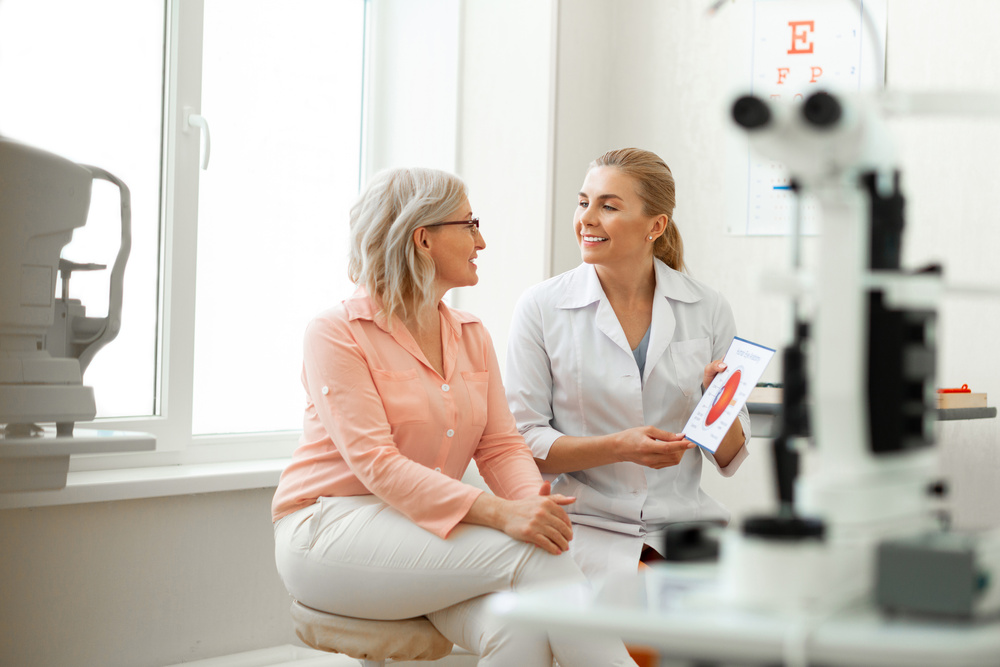If you want to always have clear vision, you must visit a trusted optometrist near you for a thorough eye examination. Eye exams are critical to ensuring the long-term health of your eye, especially in preventing various eye diseases or conditions that don’t always show any kind of symptoms.
If you have scheduled an eye doctor appointment comping, you might be wondering how to get yourself ready for it. Although the eye doctor will do all the work during the exam, there are some things that you must do to help ensure that you get the most out of it.
Know Your Medical History
What kind of eye problems or issues are you experiencing? When did they begin? These are some of the many questions that an optometrist will ask you during the appointment, so it’s important that you can answer as many questions as possible.
When you arrive at the office of the eye doctor in Round Rock, it can be hard to remember any eye problems or issues you experienced. So, it pays to bring a record of your medical history with you. Going over your medical history is one of the keys to a successful eye doctor appointment.
Bring Your Medications
It’s also important that you bring all the medications you currently take, as well as the dosage numbers. Medications can have side effects which affect eyesight, such as antidepressants and cholesterol medications. You should also take your visual aids like a contact lens and any reading glasses to the appointment.
All of these will be checked by the eye doctor to see if they are properly prescribed. It will allow your optometrist to know more about your current status. It will also help prevent your eye specialist to prescribe any medications that could aggravate any pre-existing medical condition or contradict the effects of the drugs you’re already taking.
Make A List Of Concerns Or Questions
Don’t hesitate to ask the eye doctor about any concerns or issues that you might have. Ask as many questions as possible, including something minor.
As preparation, spend some time thinking about any vision issues you’ve experienced lately and write them on paper. Feel free to include when they begin, what triggers them, and what helps.
Your eye specialist will answer any concerns or questions you might have to ensure they’re working properly. They may also recommend some treatments you can try at home.
Look For A Good Eye Doctor
It’s critical that you schedule an appointment with the right specialist. Talk to your general physician who can give you some names of eye doctors nearby. They can refer you to a specialist who’ll be good for you.
You might also want to ask your friends, colleagues, or family relatives if they know of an eye doctor they can recommend.
Check Their Credentials
You need to make sure that the specialist you choose is licensed and authorized to perform examinations on your eyes. Some eye doctors are also given the license to prescribe medications, contact lenses, and eyeglasses to their patients to help treat their vision problems.
Another thing you need to ensure is that you must pick an eye doctor who is highly experienced. A skilled eye doctor not only has the expertise to address your specific concerns but also possesses the scientific knowledge to understand how various eye problems can impact your overall health. To find a trusted professional, start by searching online for reputable eye doctors in sugarland or your region.
Expect A Thorough Exam
If anything, you should expect a thorough eye examination to accurately identify any vision problems you might have. Your eye specialist will conduct a series of tests that often includes the following:
- Visual acuity test
- Visual field test
- Slit-lamp examination
- Fundus photography
- Dilation
- OCT screening
- Glaucoma screening
- Pupil dilation
- Refraction
All these tests will help ensure that every part of your visual system is functioning properly.
Prepare Yourself For Eye Drops
For some, having drops put into their eyes can be a frightening experience, especially if it’s their first time. To prepare yourself, you should ask the doctor what the purpose of the drops is and what are their side effects, if there are any.
This way, you won’t get anxious when the eye exam starts and the specialist starts to use drops for your eyes.
Educate Yourself About Your Condition
Gather information about your eye condition from reputable sources and look for different treatment options.
Building your knowledge base before going to your scheduled eye doctor appointment can help you come up with good questions and make informed decisions when it comes to choosing the best treatment.
Don’t Strain Your Eyes
If possible, minimize screen time before the appointment so your eyes will be well-rested. Too much screen time can cause digital eye strain and fatigue that may affect the results of your exam.
If you can’t help spending some time on your computer or smartphone because of work, give your eyes as much time as possible before going to the doctor’s office.
Bring Insurance Information
Don’t forget to bring your insurance card to your appointment. Your medical insurance should cover your eye exam. Also, it can be a great help if you’re worried about a certain eye problem such as glaucoma. Either way, having your vision and medical insurance with you can help speed up your appointment.
Final Thoughts
Preparing for your next eye doctor appointment is more about focusing on how to get the most out of it. Don’t forget to get a good night’s sleep the day before your eye exam and avoid spending too much time using your smartphone, tablet, or any other mobile device to help prepare your eyes for the appointment. By doing so, you’ll have a happy and memorable eye exam experience!

